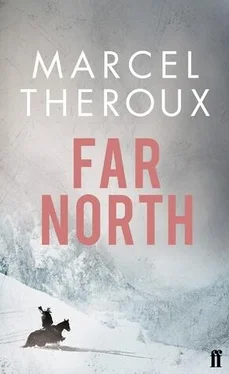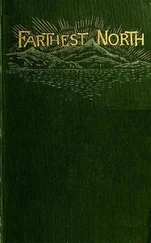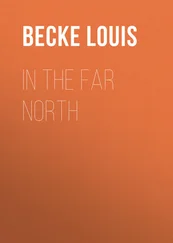What happened to me killed the hope of our city and it killed my father too. He took a straight razor and cut his own throat in the forest. I was too badly hurt to see him buried.
For three weeks, I had to lay in bed with a wet cloth on my face to keep the skin moist and lessen the scarring. The pain was bad, but what I remember was the noisis that meioting in the street outside the window. The Callards were driven out of the city and in the upheaval many houses burned.
When the bandages came off, the skin was raw and my whole face was pulled out of true — left eye drooping, mouth awry. I’m not saying I was a looker before, but I wasn’t unhandsome and I had my good days when I could feel men respond a little quicker to me. But after that, I started wearing my hair short and mannish. When the city fathers agreed to start a militia, mine was the first name on the list.
*
Our police rode armed, and had powers of arrest. We had a code that our magistrates were supposed to enforce, and cells to remand offenders. But all we had as actual punishments were orders of interdiction, which meant in practice being evicted beyond the city limits if you were found guilty of a crime. The city fathers didn’t have the stomach for anything stronger — an armed police force was bad enough.
At the beginning we were able to stand in the way of mayhem, but as time wore on there was just too much of it. And we were in the crazy position of a man finding mice in his larder, who picks them up by the tail, carries them outside, and then waits for them to dig their way back in.
And try how we might, the disorder multiplied. Once, there had been an understanding between us about how disputes should be settled. People were direct and approached each other boldly. They had staked their futures on this experiment. We didn’t all like each other, but we knew each other. Now there was a gap between us and our neighbours and it filled with fear and resentment. No one wanted to be the last unarmed man in the city. And if you looked for justification to arm yourself, there was plenty of it. If the Callards were capable of what they’d done, then no one could be trusted. ‘If the salt has lost its savour, wherewith shall it be salted?’ people said. With my father dead, there was no one to speak up for the old ways. They junked the ideals they’d come with and bought guns. The city changed out of all recognition.
The chaos seemed to draw in a particular kind of vagrant. Everything was up for grabs. In peaceful times, the steady and patient thrive. But it takes a quick and ruthless type to flourish amid disorder. And we, the citizens of our own city, were co-conspirators with them.
The thing is, to people brought up on a diet of the Bible and the thought of their special place in god’s plan, a global disaster is something they’ve secretly been longing for. We’d been talking about the millennium for centuries. Now it seemed the End Times had arrived. Men like to meet a crisis head-on, wallop straight into it as though it’s a test of strength. Why? Surely it’s better to edge round it, fade into the background with the things you need. Spring will come again next year. There’s food in the woods if you’re sharp enough to know where to look.
The Scriptures were certainly fulfilled, though, just not in the way anyone had expected. There was no Second Coming, no lion and lamb lying down together. No. An orderly, modern city descended into a bunch of hungry tribes fighting over a desert. So I guess you could call the Bible a prophetic book in that sense.
Bill Evans had finished his work and was looking to find a way to travel back to his home in Alaska when he got killed breaking up a fight. But that was a long time later. It took a couple of years for things to descend to thatheight="0em">
THEY KEPT ME in the dark in that hole above two weeks. It was cold enough not to stink too bad, but that was the best you could say for it. I kept myself sane by letting my mind wander. I built up a world in my head where things had gone otherwise and I spent my time there, instead of on the dirty blankets in the darkness. I liked to think of Ping’s child growing up strong. I could see her face and her straight black hair like her mother’s. I took her bathing at the lake in the mountains and though her chin trembled in the cold water, she had a strong kick like a little frog.
The food improved after the first ten days. The soup was thicker, with a little meat in it, and potatoes. I figured that they were trying to build me up for my hard labour. I wondered if they would be stupid enough to let anything resembling a weapon into my hands. Boathwaite didn’t look like a person who would underestimate somebody, but there was no harm in hoping.
Finally, one morning, they opened the door and instead of sliding in a tin plate of food, in came a man in a farrier’s apron holding a set of manacles and a length of chain. He was followed by two men with cudgels who held me down while the first man fastened me into the restraints.
I resisted a little, but just to keep the men occupied. One called me an ugly bitch and waved his cudgel at me, but it wasn’t heartfelt. He was just showing off to his friend, and though I was wriggling, what I really wanted was to get a good look at the locks on the manacles.
Unluckily for me, the men knew their work. They put me into a leather belt, and the chain passed through a loop in it to join the handcuffs with another set of restraints on my ankles.
When they left me alone again, I shuffled into the brightest part of my cell, and pulled a clanking length of chain into the light so I could examine it better.
It was of good-quality steel, heavy and well made, and it looked new. For all the hardship in Horeb, it was clear that Boathwaite wasn’t cutting any corners where his enemies were concerned.
I wondered about that steel, its provenance. Like the wheat flour in their stale bread, it was beyond what the people in the town seemed capable of. The farrier must have shortened it by a link or two, and worked the loop into the leather belt, but his handiwork seemed gross beside the fine workmanship of the steelmaker. It seemed an awful waste of metal to me, but then Boathwaite and I had different priorities.
*
Sometimes, when you’ve suffered a lot, it turns out to be the small thing that breaks you. That chain almost finished me. It wasn’t so much the weight as the cold of it, drawing the heat out of me, and clanking when I moved. I started to reminisce about the good old days — I don’t mean at home, I mean before the chain, when the cell was still stinking and cold, and the food bad, but at least I had the freedom to move. Gradually, it felt more and more burdensome. And to stay comfortable, I had to slump, hunched up in the dirt in a posture of defeat, and too tired to budge.
All my dreams of escape came back to mock at me now. They seemed as unreal as my dreams of Ping and her child living. I am nothing when I can’t move. I refused to eat, and I’m stubborn enough to have starved myself, except that after two days more, one of the gaolers swung the door open and told me it was time to leave.
Someone threw me a ragged quilted jacket, a hat and a pair of greasy mittens. I thought of my warm snow-sheep gloves and my wolverine pants. I wondered who was wearing them now.
I put on the clothes and shuffled forward into the light, blinking like a thing that lives in darkness. The main square of Horeb was smaller than I recalled, barely the size of our backyard at home.
The gates were open and the people of the town drawn up in two rows, making a corridor for me to pass through. They stood in silence, watching me shuffle past, chains clanking.
I searched their faces for some clue to where I was headed but they were all grey and stony. Finally, I caught sight of Violet among them. ‘She’ll wish she’d been hanged after all,’ she announced to the crowd, and there was a murmur of agreement.
Читать дальше












